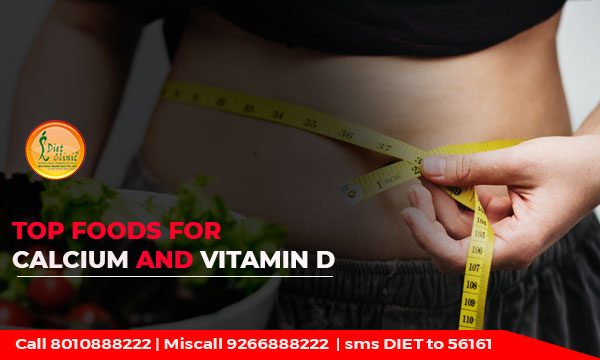
Dietician Sheela Seharawat
Calcium is a vital mineral that is needed by the human body for many important functionalities. But at the same time it needs the help of other minerals and vitamins to be absorbed by the human body. It is also that calcium along with these other minerals and vitamins, which are so called essential nutrients reacts and binds to bring about certain important chemical reactions in the body. And one of these essential element is vitamin D.
Noted below are some critical benefits of men and women health of calcium and vitamin D. Have a look:
Calcium benefits:
In addition to build healthy bones, calcium has other jobs in hand also like enabling our blood to clot, the muscles to contract and even our heart to beat. Some other vital functions are:
- Propagates weight loss
- Controls and decreases blood pressure
- Reduces cholesterol build up
- Protects from stroke
- Does not allow osteoporosis to happen
- Protects against gum diseases
- Prevents colon cancers
- Helps building string bones and teeth
Vitamin D benefits:
- Decreases and controls blood pressure
- Protects against heart disease
- Prevents osteoporosis
- Helps prevent development of arthritis
- Prevents colorectal and prostate cancer
What is recommended daily requirement calcium and vitamin D?
As per dietary guidelines, the daily requirement of calcium for a human body (men and women both) is:
- Age 50 and below : 1000 mg per day
- Age 51 and above : 1200 mg per day
People who have trouble getting the recommended calcium from the food, needs to be on its supplements to fulfil the daily requirements.
As of vitamin D requirement:
- Age 5o and below : 400 – 800 units per day
- Age 51 and above : 800 – 1000 units per day
What are the food and other sources from where we could get calcium and vitamin D?
Food is the best source from where we can all the essential and much needed vitamins and minerals our body needs to develop and function properly. Dairy and dairy products such as milk, cheese and yoghurt are rich sources of calcium. Certain fishes like sardine and salmons are also good sources of calcium. Certain vegetables like turnips and broccoli also do have some amount of useful calcium contents. There are some added calcium in some foods like fruit juices, soy milk, breads, cereals and even bottled water.
Dietician Sheela Seharawat says that as far as food in concerned, there are only very few foods which have little or trace amount of vitamin D and it is one vitamin that the body does not produces by itself. These foods are some fatty fishes like salmon, wild caught mackerel and sardines. In some foods like soy milk, fruit juices and fortified cereals that has added vitamin D.
As per the best dietician near me the primary source of vitamin D is from the sunlight. In a reaction, our skin makes vitamin D and stores in the fat, to be used later. Now, how much our skin can produce or, manufacture vitamin D for the body to use depends of a lot of factors – where we stay, the time of the day our skin is exposed to sunlight, age, skin pigmentation and alike.
People who do not get enough vitamin D through foods and sunlight, need to tale supplement of the same for fulfilling the needs of the vitamin.
.png)






